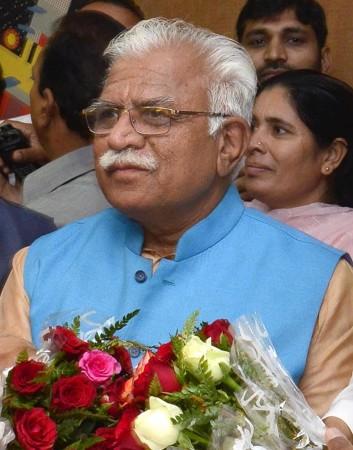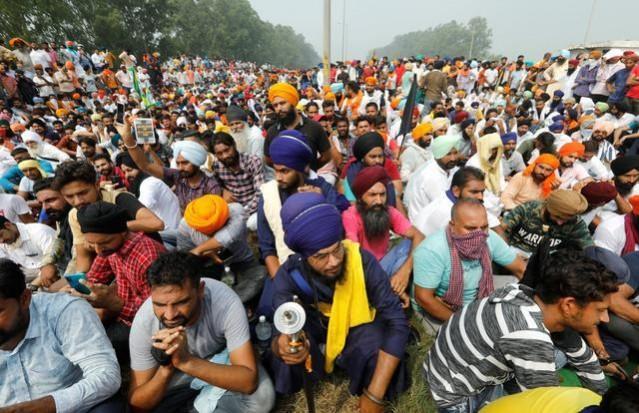The Modi government claims that the new farm laws at the center of massive farmers' protest will pave the way for "one nation-one market", giving freedom to farmers to sell their produce anywhere in the country and more bargaining power. However, some chief ministers including that of the ruling BJP seem to disagree and have other plans in mind.
Chief ministers of at least two BJP-ruled states -- Madhya Pradesh and Haryana -- have announced that they would not allow farmers of other states to sell their agriculture products in their states. Recently, Madhya Pradesh CM Shivraj Singh Chouhan went on threaten "farmers outside of Madhya Pradesh" of jail if they dare to attempt to sell their produce at government procurement centers in the state.

Addressing the crowd in Sehore, Chouhan said on Thursday, "I have decided that only the produce of the crops harvested in the state will be bought. If someone from outside the state come, even try to sell from the neighbouring states, then his truck would be confiscated and he would be sent to jail."
Non-compliance to barrier-free trade
In September, Haryana Chief Minister Manohar Lal Khattar also said his government will ensure that farmers from other states do not benefit from selling their produce in the state. This decision, however, contravened the farm laws passed earlier the same month by the Centre, which promised a barrier-free trade at the market and price of the farmer's choice.
Khattar said at a virtual press briefing that Haryana has to take care of its farmers and it "doesn't have to worry about farmers of other states". He refused to procure crops from other states.
Khattar had then said that Congress-ruled states like Punjab and Rajasthan have not been procuring crops like maize and bajra on the minimum support price (MSP), forcing farmers from those states to sell their produce in Haryana.

The move would hit farmers of surplus producing states hard if the new laws that treat Agricultural produce market committee (APMC) markets and private purchasers similarly, would continue. In surplus producing states, the new laws will snatch away the bargaining power of farmers and if other states wouldn't allow them, then they would practically be left to the mercy of private players and ultimately harming the cause of new laws.
Farmers' stir for repeal of new laws
Thousands of farmers are camping at the borders of Delhi at several entry points, demanding that the government completely rollback the new laws that they call as "black laws". Several political parties and farmers' unions have demanded a special parliament session to scrap the laws that were enacted in September this year.
The Farmers' Produce Trade and Commerce (Promotion and Facilitation) Bill, the Farmers (Empowerment and Protection) Agreement of Price Assurance and Farm Services Bill and the Essential Commodities (Amendment) Bill were cleared by Parliament months ago amid protests from the opposition.
The minimum support price system in the country was brought in to ostensibly protect the interest of farmers. Even if the market prices of crops fall, the central government buys crops from the farmers at the fixed minimum support price to cushion them from loss.

Data contradicts govt claims
But the experiences of the farmers tell a different story entirely. As per the central government website https://agmarknet.gov.in/, 5,979 tonnes of soybean have arrived in mandis across the country as of October 1, with the average model price of Rs. 3,463 as against the MSP of Rs 3,880 per quintal. Similarly, 5,355 tonnes of maize have reached the mandis, procured at Rs.1,163 as against the MSP of Rs. 1,850 per quintal.
Even critics have opined that these new agricultural policies would lead to farmers losing out on guaranteed purchase prices for their crops, to the benefit of large corporations.
Govt-farmers talks
On Saturday, the Central government held fifth round of talks with representatives of over 50 farmers' organizations to negotiate on the new laws. The talks, however, have remained inconclusive so far, with farmers hardening their stance on repeal of the laws.
There have been massive protests against the three farm laws in Punjab and Haryana, two states which are recognized as the "grain bowls" of the country owing to the surplus production of crops per year in comparison to any other states across India.
In the protests that have been backed by most opposition parties, farmers and traders have been vehemently opposing the new bills, alleging that the government wants to discontinue the MSP regime in the name of reforms.















